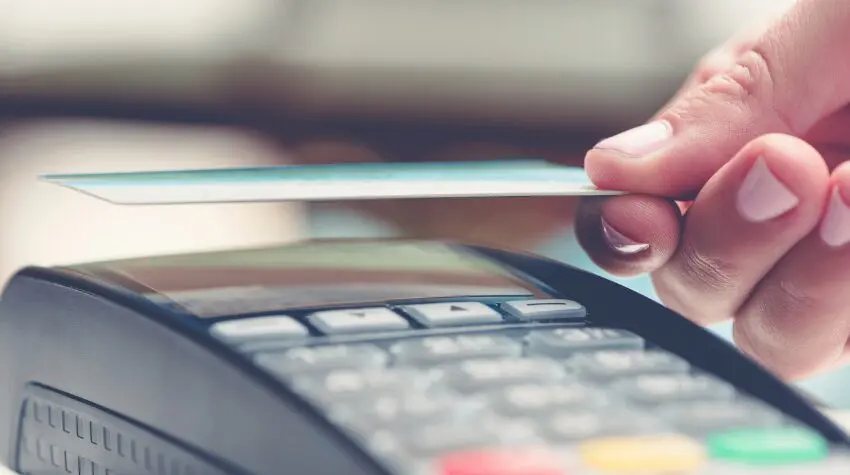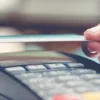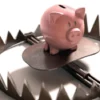
“Just put it on the card and I’ll deal with it later” — does that sound familiar?
These days, buying is as easy as swiping a card… or even easier: your credit card is probably already stored on your phone or smartwatch, so there’s no need to carry the physical plastic anymore.
Credit cards have become an extension of our spending power. And while they can be useful tools, they can also become a quiet source of financial stress. Especially because we live surrounded by ways to spend quickly and without much thought — which makes it harder and harder to maintain healthy financial habits.
What’s going on with our credit cards?
More and more people are using credit cards as an extension of their salary — or worse, like “extra money” that just magically appears. But we need to remember this isn’t our money, it’s borrowed money.
The problem isn’t using the card — it can be a useful tool — but using it impulsively or without a clear strategy. Impulse buying, minimum payments, and balances that roll over month after month are becoming the norm.
And that’s the real danger: Paying only the minimum means every purchase ends up costing much more than you thought, thanks to accumulated interest.
This kind of usage also directly affects your credit score, which can close doors when it comes to applying for a loan, buying a home, or even renting.
What starts as “just a temporary help” can quietly become a difficult cycle to break.
Consequences of misusing credit
Using your credit card without control may seem harmless at first — “it was just one meal,” “I’ll pay it next month” — but over time, these habits can turn into a serious financial burden.
- Silent debt
Credit card debt doesn’t always show up immediately. Since we usually pay only the minimum or a bit more, the balance grows little by little… until one day, the total becomes overwhelming. - Accumulated interest
The true cost of a credit card purchase isn’t the price tag — it’s what you end up paying months later. If you don’t pay the full balance, interest adds up and makes that purchase much more expensive than expected. - Damaged credit score
Using too much of your limit, paying late, or carrying a balance month after month directly affects your credit history. That impacts everything — from getting approved for a mortgage to the interest rates you’re offered or your ability to rent a home. - Financial stress and anxiety
Beyond the numbers, misusing credit creates mental pressure. Living with the feeling of being “trapped” in endless payments or being afraid to check your statement can hurt your emotional well-being and quality of life.
How to improve your credit habits
It’s not about quitting credit cards — it’s about learning how to use them. Here are a few simple but powerful habits that can make a big difference:
- Use it with intention
Don’t see your credit card as extra money. Use it only for purchases that are already in your budget — like gas, groceries, or expenses you know you can cover when the bill arrives.
Important: if you can’t pay it soon, maybe it’s not the right time to buy it.
- Pay more than the minimum
The minimum payment is a disguised trap. Even a little more each month helps you reduce interest and get out of debt faster. Paying just the minimum can drag debt on for years. - Track your balance
Checking your card only when the statement arrives isn’t enough.
Use apps, alerts, or even a spreadsheet to know how much you’ve spent in real time. Having clarity helps you avoid surprises and make more conscious decisions.
If you don’t know where to start, in this previous article about lifestyle inflation we recommended an app called Money Manager that can help you organize your finances easily.
- Set personal limits
Create clear rules: for example, don’t use the card for purchases over a certain amount, or don’t use it once you’ve reached 50% of your limit. This protects you from overspending and helps you prioritize. - Use credit to your advantage
Well-managed credit opens doors. Paying on time, keeping your balance low, and maintaining a clean history improves your score — which can give you access to better interest rates, loans, and financial opportunities in the future.
What if you’re already tangled up in credit?
You’re not alone. Millions of people have been there, and the most important thing is not to get stuck in guilt.
Talk to your bank and ask about interest freezes or payment plans. Consider getting financial advice, or explore tools like debt consolidation if it fits your situation.
Not everything gets fixed overnight, but every small step counts. Financial recovery is possible, and it starts with conscious decisions.
Final thoughts
The credit card isn’t the problem. In fact, when used responsibly, it can be a great ally. But when it becomes a tool for impulsive purchases or quick fixes, that’s when we lose control.
Before making a purchase, ask yourself:
Is this bringing me closer to my goals — or pulling me away?
Am I buying this because I need it… or just because I can?
Financial freedom doesn’t mean avoiding credit — it means learning to use it in your favor.








